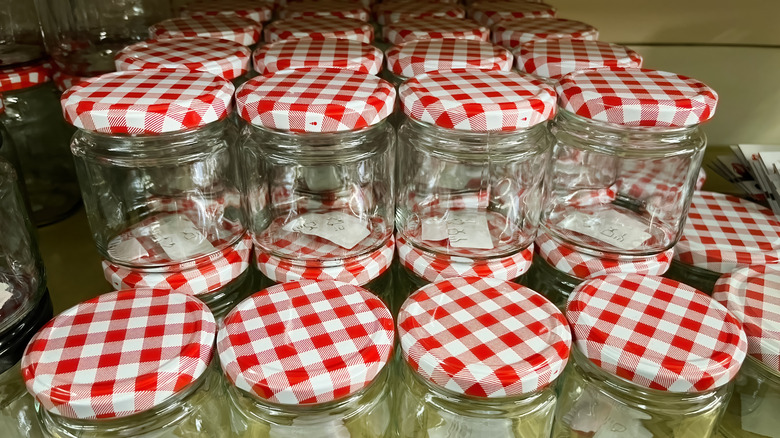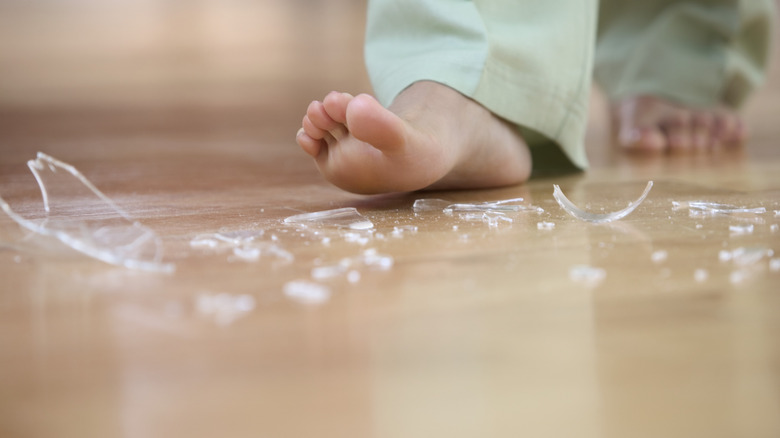Common Issues With Mason Jars That You Shouldn't Let Fly Over Your Head
We may receive a commission on purchases made from links.
Mason jars have been around since the 1800s, but they have experienced a resurgence of popularity in recent years. Today, Mason jars are wildly popular, and not just for storing food and canning. Mason jars also have a multitude of uses in the yard and garden, ranging from growing herb gardens to attracting hummingbirds. The popularity of Mason jars is largely attributed to the fact that they're resealable and affordable, and have a clean and stylish aesthetic. Despite the profound popularity of Mason jars, they do have a few flaws that you may want to consider before you continue to grow your Mason jar collection, or purchase the jars for the very first time. The main issues with Mason jars are that they're very slippery when wet and that they are not insulated. Additionally, they can be difficult to pour from, and some Mason jars may have harmful chemicals in their lids.
While some of these issues may not seem to warrant ditching your entire Mason jar collection, they're definitely something to consider if you're planning on purchasing more jars. They're also something to keep in mind if you're planning on using Mason jars for any projects with kids, or if you're planning to use them for any projects involving hot water, as you don't want to burn yourself. The good news is there are several ways to combat these common issues so you can continue reusing your old Mason jars safely.
Diving further into Mason jar issues and possible solutions
When wet, Mason jars can become very slippery and they will break if they fall and hit the ground, which can cause some serious safety issues, especially with pets or little ones running around the house. However, this is also the case with all glass jars, and is not just a Mason jar specific problem. It's important to handle Mason jars with extra care if you're mixing them with liquids, and as always, make sure you're wearing protective footwear in case you do drop one. Another issue with Mason jars is that if you try to pour from them, you're going to be hard-pressed not to make a mess. However, it's easy to fix this problem by purchasing a pour lid, like the County Line Kitchen Wide Mouth Mason Jar Pour Spout Lid on Amazon, or trying this clever Mason jar pour hack. You can also fix the issue of Mason jars not being insulated by purchasing an insulated Mason jar sleeve, such as the WKieason Wide Mouth Mason Jar Neoprene Sleeve, also on Amazon.
A more serious common issue with Mason jars is that some of the lids may have a BPA coating. BPA, which stands for bisphenol A, is an industrial chemical found in plastics that can cause significant health problems when present in food containers. The good news is, as of June 2013, Mason jars produced by the Ball Canning Company are no longer made with BPA, so as long as you purchase only newer jars, you should be safe in that regard. When buying new Mason jars, it's always worth looking for a "BPA-free" label to ensure there are no hidden nasties.

